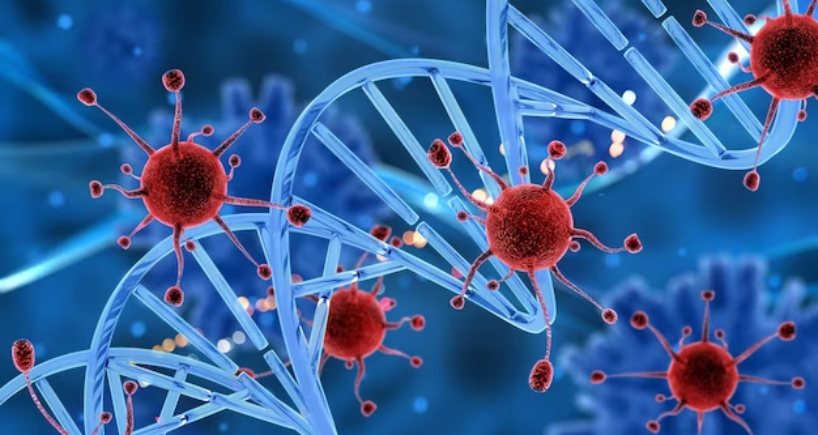
Cancer and Genetics: Understanding Hereditary Risk
Cancer, a complex and multifaceted disease, can often have a hereditary component, making it crucial for individuals with a family history of cancer to comprehend the role of genetics in cancer risk. Advances in genetic research have uncovered valuable insights into how certain genes can influence susceptibility to cancer. In this blog, we delve into the intricate relationship between genetics and cancer risk, emphasizing the importance of genetic testing in identifying hereditary factors.
The Genetic Landscape of Cancer
1. Genes and Cancer Susceptibility:
Recent studies have identified specific genes associated with an increased risk of certain cancers. For instance, mutations in the BRCA1 and BRCA2 genes are linked to a higher risk of breast and ovarian cancers. Understanding these genetic markers allows for proactive measures, such as increased surveillance and preventive interventions.
2. Genetic Mutations and Oncogenes:
Oncogenes, responsible for promoting cell growth, can undergo mutations, leading to uncontrolled cell division and, consequently, cancer. The identification of such mutations through genetic testing aids in targeted therapies and personalized treatment plans.
3. Tumor Suppressor Genes:
Conversely, mutations in tumor suppressor genes can impair their ability to regulate cell growth and prevent cancer development. Recognizing these mutations enables healthcare professionals to tailor treatments to address specific genetic abnormalities.
The Importance of Genetic Testing
1. Early Detection and Prevention:
Genetic testing provides a powerful tool for early cancer detection and prevention. Individuals with an elevated genetic risk can benefit from enhanced screening protocols, enabling the identification of cancer at its earliest, most treatable stages.
2. Informed Decision-Making:
Armed with knowledge about their genetic predisposition, individuals can make informed decisions about their healthcare. This may include preventive surgeries, such as mastectomy for those with a high risk of breast cancer, or more frequent screenings to monitor for early signs of cancer.
3. Family Planning:
Understanding hereditary cancer risks is crucial for family planning. Genetic testing can inform individuals about the likelihood of passing on cancer predispositions to their offspring, allowing for informed family planning decisions.
Real Industry Insights
A. Advancements in Genetic Technologies:
The field of genetic testing has witnessed remarkable advancements. Next-generation sequencing technologies enable comprehensive analysis of an individual's genetic makeup, providing a more nuanced understanding of cancer susceptibility.
B. Precision Medicine in Cancer Treatment:
Precision medicine, which tailors treatments based on the specific genetic characteristics of a patient's cancer, has become a groundbreaking approach. Real-world data shows improved treatment outcomes and reduced side effects with personalized therapies.
C. Insurance and Genetic Information:
Industry insights reveal ongoing discussions about the ethical and legal implications of genetic information, particularly in the context of health insurance. It is essential for individuals undergoing genetic testing to be aware of potential ramifications and to advocate for their rights.
Categories
Clear allMeet the doctor

- Oncology | Medical Oncology | Oncology
-
15 Years
-
1800



















